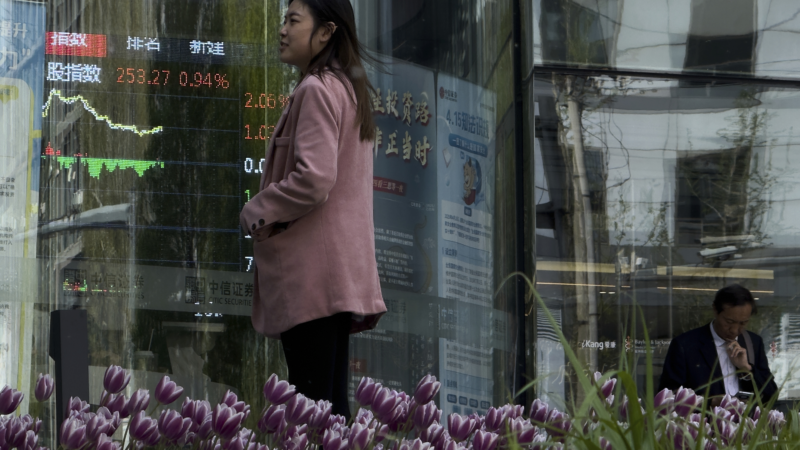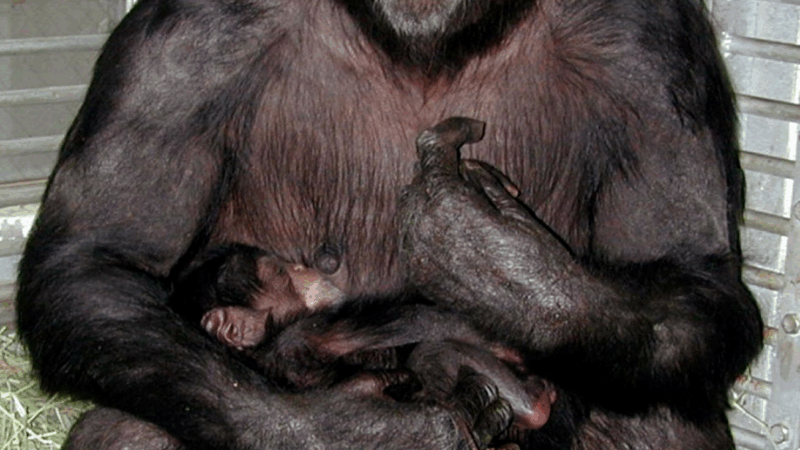Beijing slaps 125% tariffs on U.S. goods in latest U.S.-China trade escalation
HONG KONG — Beijing retaliated Friday to higher U.S. tariffs on Chinese goods, slapping 125% tariffs on U.S. goods after a brief delay that had kept investors guessing.
“Given the current level of tariffs, U.S. goods exported to China are no longer market-viable,” China’s Ministry of Finance said in a statement announcing the new levies.
“If the U.S. continues to increase tariffs on Chinese exports, China will not respond,” the statement added, in a sign that Chinese authorities see no real upside to continued tit-for-tat measures.
Asian markets closed with a mixed picture just before the statement was released Friday, as investors struggled to interpret sometimes conflicting signals over the escalating trade war between the world’s two largest economies.
Japan’s Nikkei slumped nearly 3% on Friday, while South Korea’s Kospi fell by 0.5%.
But Taiwan’s composite index jumped nearly 3%, Hong Kong’s Hang Seng Index rose 1.3% and key indices in China also rose slightly.
Early trading on European markets opened largely higher on Friday, but within minutes of the latest announcement from Beijing the major indices in London, Frankfurt and Paris began to move lower, into negative territory.
U.S. futures, which indicate the likely movement of stocks on exchanges including the Nasdaq, S&P 500 and the Dow Jones Industrial Average, also started to fall in the hours ahead of U.S. trading.
The mixed trading day followed losses on Wall Street Thursday, as the initial optimism surrounding President Trump’s 90-day suspension of higher global tariffs faded.
The “ongoing trade policy volatility” has shaken investors’ and policymakers’ confidence and “will put downward pressure on global activity and investment in the near term, regardless of the outcomes,” analysts at the Australian bank ANZ wrote in a note to clients.
The White House clarified on Thursday that China now faces a tariff rate of 145% on its exports to the United States. That figure includes a pre-existing 20% tax on goods and has stoked significant fears — now realized — that the U.S.-China trade spat could further deteriorate.
But some economic and political analysts say the numbers themselves are becoming almost irrelevant at this point.
“Tariffs at 150%, or 45%, or 125% is already probably maxed out. You can increase that to 300%, 1,000% but it’s not really meaningful. The result of having such high tariffs between China and the United States means…China-U.S. trade will come to an abrupt halt in a matter of weeks,” said Victor Gao, with the Beijing-based think tank the Center for China and Globalization.
“I’m afraid at this particular moment, unless the United States demonstrates flexibility and promises to deal with China with decency and dignity, there is really no meaning for any dialogue or negotiation,” he said. “If the United States wants to turn China into an enemy, they will get an enemy.”
In the meantime, China has also been seeking to shore up its ties with other regional economic players.
Finance and central bank officials from China, Japan and South Korea recently met to discuss the impact of U.S. tariffs, China’s central bank said in a statement on Friday.
State media also reported that President Xi Jinping will visit Vietnam, Malaysia and Cambodia next week, a possible sign the Chinese leader wants to strengthen ties with Asian trading partners as its relationship with the U.S. fractures.
Several of those Asian nations now face a precarious balancing act though, as they look to maintain relations with Beijing, without incurring the wrath of Washington.
All three countries were slapped with very high U.S. tariffs this month, and all subsequently said they wish to negotiate with the Trump administration — Vietnam even offered to slash tariffs on U.S. imports to its country to zero almost immediately.
But that offer seems not to have satisfied U.S. officials, who have accused the country of allowing Chinese products bound for the U.S. to be routed through Vietnam, thereby helping Chinese manufacturers avoid the steeper levies that currently target Beijing.
Vietnam was facing American tariffs of 46% before Trump’s temporary suspension was announced, and the U.S. had been Vietnam’s biggest export market.
In an effort to see the steeper rates reduced when the suspension ends, Vietnam is now preparing to crack down on Chinese goods being shipped to the U.S. through the country, according to Reuters. It will also tighten controls on sensitive exports to China.
John Ruwitch and Willem Marx contributed to this report.
US launches new retaliatory strike in Syria, killing leader tied to deadly Islamic State ambush
A third round of retaliatory strikes by the U.S. in Syria has resulted in the death of an Al-Qaeda-affiliated leader, said U.S. Central Command.
NASA rolls out Artemis II craft ahead of crewed lunar orbit
Mission Artemis plans to send Americans to the moon for the first time since the Nixon administration.
Trump says 8 EU countries to be charged 10% tariff for opposing US control of Greenland
In a post on social media, Trump said a 10% tariff will take effect on Feb. 1, and will climb to 25% on June 1 if a deal is not in place for the United States to purchase Greenland.
‘Not for sale’: massive protest in Copenhagen against Trump’s desire to acquire Greenland
Thousands of people rallied in Copenhagen to push back on President Trump's rhetoric that the U.S. should acquire Greenland.
Uganda’s longtime leader declared winner in disputed vote
Museveni claims victory in Uganda's contested election as opposition leader Bobi Wine goes into hiding amid chaos, violence and accusations of fraud.
Opinion: Remembering Ai, a remarkably intelligent chimpanzee
We remember Ai, a highly intelligent chimpanzee who lived at the Primate Research Institute of Kyoto University for most of her life, except the time she escaped and walked around campus.






